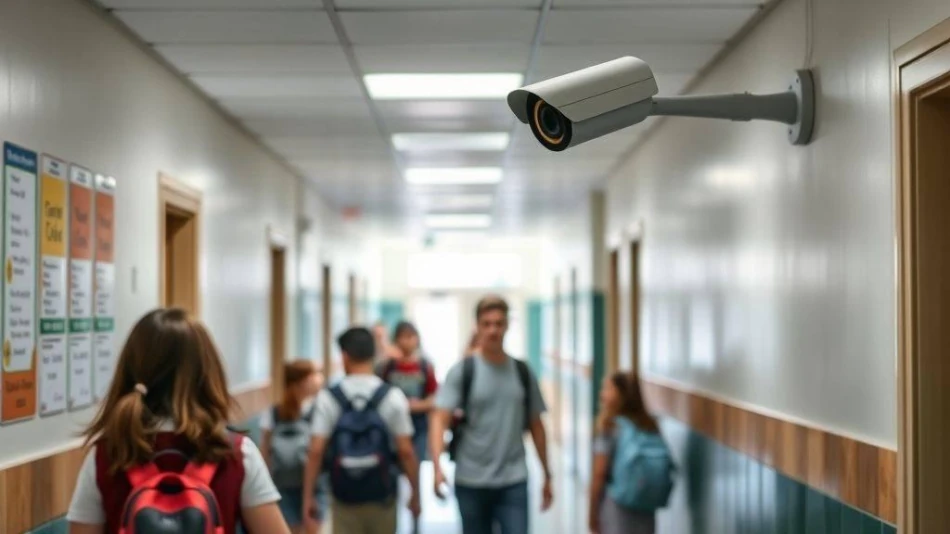
Transforming School Surveillance: From Deterrence to Discipline, Prioritizing Prevention over Punishment
Security cameras have become standard in schools across the region, monitoring hallways, courtyards, and entrances to protect students and staff. But when parents want to see footage involving their children, schools often say no — sparking debates about privacy, transparency, and who controls these recordings.
School administrators say the cameras serve mainly as deterrents, promoting discipline and preventing problems before they happen. The goal is prevention, not punishment. But when fights break out or behavioral incidents occur, these recordings can become crucial evidence.
Here's where it gets complicated. When a parent demands to see footage of what happened to their child, do they have that right?
**Legal experts say no — with conditions**
Lawyers confirm that school camera footage belongs to the institution, not parents. The recordings count as sensitive data under privacy protection laws. Only school administrators, education ministry supervisors, and police can access the footage when needed.
Parents can file formal complaints requesting investigations, but they can't just walk in and demand to see recordings. Ahmed Al Maamari, a lawyer, explains that parents don't get to decide punishments or access footage directly. Their role is limited to filing official complaints when they believe their child was harmed.
When schools do extract footage, specialized staff or certified maintenance companies handle the process. They copy only specific clips after identifying the exact date, time, and location. These clips stay in official school files and aren't handed out randomly.
**Parents push back**
Many parents think they should see recordings involving their children, especially in bullying or assault cases. Some say when schools refuse to show footage, it raises suspicions and increases anxiety.
Mohammed Khamis, Suwailam Al Junaibi, and Saif Al Hammadi — all parents — argue that cameras protect students, so there should be clear procedures letting parents view footage of their children. They say some administrators won't even discuss the issue, which creates doubt.
"Letting parents see what concerns their children won't hurt schools — it builds trust," they say. "Watching footage with the principal present doesn't violate anyone's privacy. It strengthens the partnership between home and school."
**The privacy problem**
But here's the thing — other students often appear in these recordings. Lawyer Abdullah Ibrahim warns that giving parents free access to footage could create legal problems and privacy violations. When other children show up in recordings, it might spark new disputes between families.
"Schools are meant to protect children, not drag them into family or community conflicts," Ibrahim says. The education system tries to prevent exactly these situations.
**What psychologists say**
Mental health experts point out that cameras alone don't stop bad behavior. Dr. Huwayda Ahmed, a psychiatrist at Medcare Hospital, says schools need to build respect and tolerance, plus create anti-bullying programs in classrooms.
"Cameras might reveal what happens, but they don't prevent it without awareness, education, and behavioral training," she explains. Despite strict anti-bullying rules, incidents still occur in hallways or after school hours.
**How it actually works**
School policies typically treat recordings as security documents that can't be copied or shared outside administrative and legal frameworks. When parents file formal complaints, school investigation committees review the footage. Parents might be allowed to watch it under limited conditions with a specialized committee present, but they don't get copies to take home.
Some schools receive several monthly requests from parents wanting to see footage of minor scuffles or brief conflicts. But they only respond to cases requiring official intervention. Schools say this strict approach protects everyone from misuse or irresponsible sharing.
**Teachers weigh in**
Educators warn against opening the floodgates to parent requests. This could violate other students' privacy, especially when people unrelated to the incident appear in footage.
Teacher Saleh Ghareeb says cameras are important for discipline, but their use must be responsible. "They shouldn't become tools for exposing daily details about all students — just what serves investigations."
Teacher Mohammed Al Saadi suggests a precise mechanism allowing viewing under the narrowest conditions. "Parents have the right to feel reassured, but this should happen in supervised school sessions so it doesn't become subject to pressure."
**School administrators' perspective**
Samer Sarhan, director of Knowledge School, says their cameras preserve rights and monitor behavior from both students and teachers. School regulations don't allow parents direct access to recordings — only authorized bodies when necessary.
When complaints arrive, schools review complete recordings to understand teacher and student behavior, ensuring transparency and protecting all parties. In exceptional cases where a parent's account differs significantly from reality, schools might allow them to view footage clips, especially for kindergarten students.
**The balance schools try to strike**
The current system tries to balance parents' right to know what happens to their children against other students' privacy rights. Schools must handle any incident seriously while preventing footage from being shared irresponsibly.
Most education experts agree that following proper administrative and legal channels works best: file complaints with schools, go through internal investigation committees, then escalate to official authorities when necessary. The legal and educational system aims to protect all children, with cameras serving as supporting tools rather than sources of conflict.
Most Viewed News

 Omar Rahman
Omar Rahman






